This week I took a stab at learning a little about economics and its role in the various environmental issues including global climate change, air pollution and over fishing. “What Environmentalists Need to Know About Economics,” by Jason Scorse, is a book that, using various economic theories, analyzes the three most important sources of environmental problems: market failure, the tragedy of the commons, and the underprovisioning of public goods.
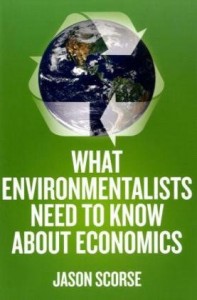 One of the things that I found interesting was that Scorse explained that one of the first principles of free markets is that for them to work effectively, the full costs of an activity must be borne by the involved parties. For example, many types of air and water pollutants exact a significant price on human health and or degrade ecoysytems, but these costs are not factored in the cost of production or at the consumer level. These costs are known as externalities and these lead to market failure. This is a common argument you hear when people talk about the “true cost of oil.”
One of the things that I found interesting was that Scorse explained that one of the first principles of free markets is that for them to work effectively, the full costs of an activity must be borne by the involved parties. For example, many types of air and water pollutants exact a significant price on human health and or degrade ecoysytems, but these costs are not factored in the cost of production or at the consumer level. These costs are known as externalities and these lead to market failure. This is a common argument you hear when people talk about the “true cost of oil.”
Scorse notes that if we lived in a world where prices fully captured environmental costs, our entire economies would look vastly different. He writes, “…we would have different modes of transportation, different layouts for our cities and towns, different dietary habits, and consumer goods would likely contain much less toxic material. Prices of environmentally harmful goods would rise and much more R&D would go into alternatives, thereby decreasing their price. In such a world society’s resources would be invested in those things which bring the greatest social value.”
In a section of the book, Scorse discusses in detail how two current proposed U.S. environmentally polices would work: cap and trade or an environmental tax. While people are inherently opposed to either scenario, he does a great job explaining how each scenario would work, the pros and cons, and the possible outcomes of each. I should note that cap and trade is already at work in the utility industry so the mechanism is already in place for cap and trade for GHG emissions, or as I like to call it, crap and raid.Read More



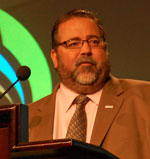 “EPA’s decision today is a sound one, but it doesn’t address the issues that still remain regarding a segmented market place and the introduction of a new fuel,” said RFA President Bob Dinneen. “The RFA will continue to work with EPA and other regulatory bodies to expand ethanol use beyond even 15%. Simultaneously, we will continue our dialogue with lawmakers to develop and implement sound, tax-based policies that provide the proper incentives to grow ethanol use across a variety of blending levels.”
“EPA’s decision today is a sound one, but it doesn’t address the issues that still remain regarding a segmented market place and the introduction of a new fuel,” said RFA President Bob Dinneen. “The RFA will continue to work with EPA and other regulatory bodies to expand ethanol use beyond even 15%. Simultaneously, we will continue our dialogue with lawmakers to develop and implement sound, tax-based policies that provide the proper incentives to grow ethanol use across a variety of blending levels.”  “Today’s decision greenlights the use of E15 for nearly two out of every three cars on the road today and furthers proves ethanol is a safe, effective fuel choice for American drivers,” said Renewable Fuels Association President Bob Dinneen. “EPA continues to move in the right direction with respect to increasing ethanol blends, but challenges still remain. The RFA continues to urge EPA to extend the waiver for E15 use to all cars and pickups.”
“Today’s decision greenlights the use of E15 for nearly two out of every three cars on the road today and furthers proves ethanol is a safe, effective fuel choice for American drivers,” said Renewable Fuels Association President Bob Dinneen. “EPA continues to move in the right direction with respect to increasing ethanol blends, but challenges still remain. The RFA continues to urge EPA to extend the waiver for E15 use to all cars and pickups.”  Brian Jennings, Executive Vice President of the American Coalition for Ethanol (ACE), says the move is another important step in making more renewable fuel choices available to consumers. “ACE continues to be confident that the scientific evidence proves E15 is safe and reliable for all cars, and is disappointed that EPA continues to insist of this confusing model-year division, especially when models earlier than 2000 are being excluded without scientific evidence of any issues with using E15 in those vehicles,” said Jennings. “We are pleased with this positive step, but remain concerned about the unnecessary confusion that will unfortunately be caused by EPA’s piecemeal, partial-waiver approach.”
Brian Jennings, Executive Vice President of the American Coalition for Ethanol (ACE), says the move is another important step in making more renewable fuel choices available to consumers. “ACE continues to be confident that the scientific evidence proves E15 is safe and reliable for all cars, and is disappointed that EPA continues to insist of this confusing model-year division, especially when models earlier than 2000 are being excluded without scientific evidence of any issues with using E15 in those vehicles,” said Jennings. “We are pleased with this positive step, but remain concerned about the unnecessary confusion that will unfortunately be caused by EPA’s piecemeal, partial-waiver approach.” The U.S. Environmental Protection Agency (EPA) today waived a limitation on selling gasoline that contains more than 10 percent ethanol for model year (MY) 2001 through 2006 passenger vehicles, including cars, SUVs, and light pickup trucks. The waiver applies to fuel that contains up to 15 percent ethanol – known as E15. EPA Administrator Lisa P. Jackson made the decision after a review of the Department of Energy’s thorough testing and other available data on E15’s effect on emissions from MY 2001 through 2006 cars and light trucks.
The U.S. Environmental Protection Agency (EPA) today waived a limitation on selling gasoline that contains more than 10 percent ethanol for model year (MY) 2001 through 2006 passenger vehicles, including cars, SUVs, and light pickup trucks. The waiver applies to fuel that contains up to 15 percent ethanol – known as E15. EPA Administrator Lisa P. Jackson made the decision after a review of the Department of Energy’s thorough testing and other available data on E15’s effect on emissions from MY 2001 through 2006 cars and light trucks.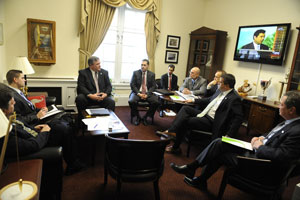 A delegation of representing Michigan ethanol producers hit Capitol Hill on Thursday for a series of meetings with members of Congress and their staff. The fly-in, organized by
A delegation of representing Michigan ethanol producers hit Capitol Hill on Thursday for a series of meetings with members of Congress and their staff. The fly-in, organized by 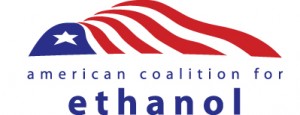
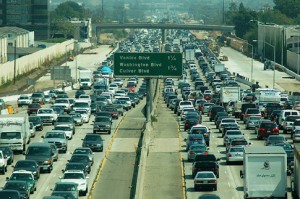
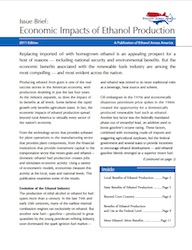
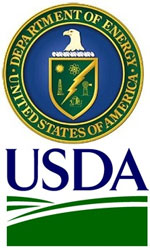 In addition to
In addition to